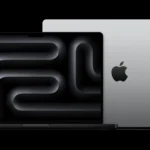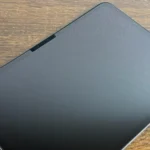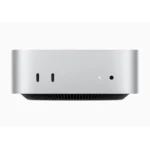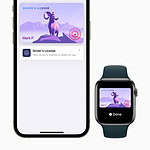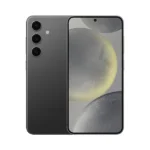Digital driver’s licenses are becoming increasingly common in the United States, allowing you to securely add your driver’s license or state ID to Apple Wallet on your iPhone and Apple Watch. Many states are working to provide this option for residents, with 15 states currently supporting it and 11+ states currently working on or in the process of adopting mobile digital licenses. This means you may soon be able to present your ID on your phone instead of carrying a physical card.
Some states, like Colorado, have already accepted digital IDs since 2019. These IDs can be used as legal proof of identity by businesses and state agencies. The Colorado State Patrol began accepting digital IDs in 2020. However, it’s still advisable to carry your physical license as a backup. The Transportation Security Administration (TSA) is also preparing to accept digital IDs at airport checkpoints in the near future, potentially making travel easier for those who prefer to use their phones. Digital IDs often utilize face or fingerprint recognition to ensure your information remains secure.
Digital Driver’s Licenses in the US
Digital driver’s licenses (mDLs) are gaining traction as a convenient and secure alternative to traditional physical licenses. These digital versions are stored on your smartphone and can be used for various purposes, including identity verification and age verification. But which states currently support this technology?
States with Active mDL Programs
As of October 2024, these states have active mDL programs:
- Arizona
- California
- Colorado
- Delaware
- Georgia
- Hawaii
- Iowa
- Louisiana
- Maryland
- Mississippi
- Missouri
- New York
- Ohio
- Utah
- Puerto Rico
It’s worth noting that Oklahoma and Florida launched mDL programs but have paused them for retooling.
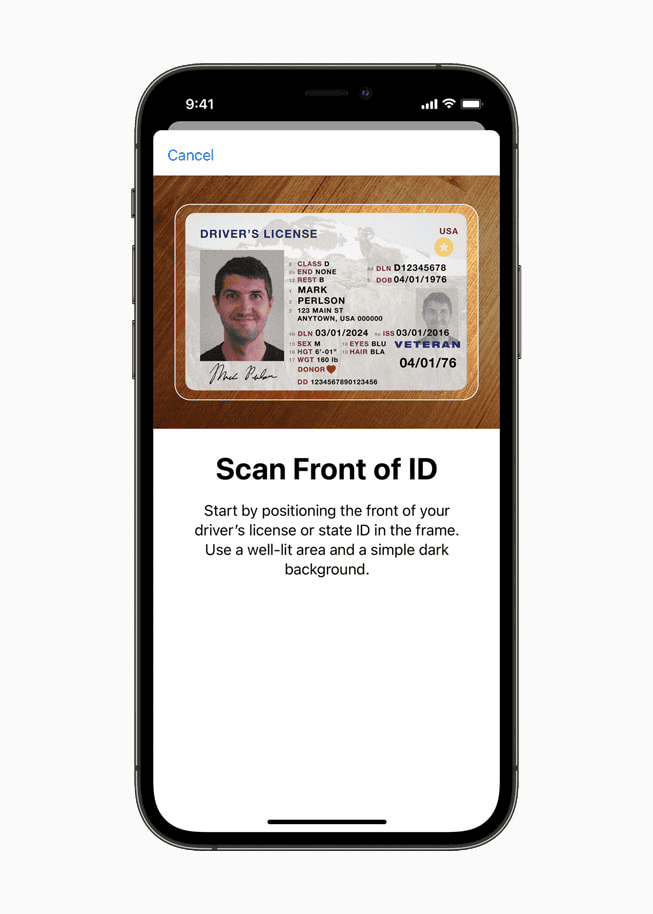
States with Announced mDL Plans
Many more states are in the process of developing and implementing mDL programs. These include:
- Alaska
- Connecticut
- Illinois
- Indiana
- Kentucky
- New Mexico
- North Carolina
- Pennsylvania
- Virginia
- West Virginia
- Washington D.C.
Benefits of Digital Driver’s Licenses
- Convenience: Carry your license on your phone, eliminating the need for a physical card.
- Security: mDLs often have enhanced security features like biometric authentication and encryption.
- Efficiency: Streamline identity verification processes at airports, bars, and other locations.
- Control: You choose what information to share when presenting your mDL.
Using Your Digital Driver’s License
Currently, the Transportation Security Administration (TSA) accepts mDLs at select airports. However, wider adoption is expected in the near future. Potential use cases include:
- Age verification
- Retail transactions
- Hotel check-in
- Car rental
- Banking
- Voting
Table: Digital Driver’s License Adoption Status
| State | Status |
|---|---|
| Arizona, California, Colorado, Delaware, Georgia, Hawaii, Iowa, Louisiana, Maryland, Mississippi, Missouri, New York, Ohio, Utah, Puerto Rico | Active |
| Alaska, Connecticut, Illinois, Indiana, Kentucky, New Mexico, North Carolina, Pennsylvania, Virginia, West Virginia, Washington D.C. | Planned |
Digital driver’s licenses are poised to revolutionize how we prove our identity. As more states adopt this technology, expect to see increased convenience and security in various aspects of daily life.
Digital Driver’s License Status By State
Here’s a table summarizing the current landscape of digital driver’s licenses in the US, based on the latest information I have:
| State | Digital Driver’s License Status |
|---|---|
| Alabama | Not yet adopted |
| Alaska | Planned |
| Arizona | Active |
| Arkansas | Not yet adopted |
| California | Active |
| Colorado | Active |
| Connecticut | Planned |
| Delaware | Active |
| Florida | Paused |
| Georgia | Active |
| Hawaii | Active |
| Idaho | Not yet adopted |
| Illinois | Planned |
| Indiana | Planned |
| Iowa | Active |
| Kansas | Not yet adopted |
| Kentucky | Planned |
| Louisiana | Active |
| Maine | Not yet adopted |
| Maryland | Active |
| Massachusetts | Not yet adopted |
| Michigan | Not yet adopted |
| Minnesota | Not yet adopted |
| Mississippi | Active |
| Missouri | Active |
| Montana | Not yet adopted |
| Nebraska | Not yet adopted |
| Nevada | Not yet adopted |
| New Hampshire | Not yet adopted |
| New Jersey | Not yet adopted |
| New Mexico | Planned |
| New York | Active |
| North Carolina | Planned |
| North Dakota | Not yet adopted |
| Ohio | Active |
| Oklahoma | Paused |
| Oregon | Not yet adopted |
| Pennsylvania | Planned |
| Puerto Rico | Active |
| Rhode Island | Not yet adopted |
| South Carolina | Not yet adopted |
| South Dakota | Not yet adopted |
| Tennessee | Not yet adopted |
| Texas | Not yet adopted |
| Utah | Active |
| Vermont | Not yet adopted |
| Virginia | Planned |
| Washington | Not yet adopted |
| West Virginia | Planned |
| Wisconsin | Not yet adopted |
| Wyoming | Not yet adopted |
| Washington D.C. | Planned |
| Puerto Rico | Active |
Important Notes:
- “Active” means the state has a live program where residents can get an mDL.
- “Planned” means the state has publicly announced intentions or is actively developing an mDL program, but it’s not yet available to the public.
- “Paused” means a program was launched but has been temporarily halted for revisions or improvements.
- “Not yet adopted” means there’s no public information about mDL plans in that state.
This is a rapidly evolving area, so it’s always best to check with your state’s DMV for the most up-to-date information.
Key Takeaways
- Many states are adding digital driver’s licenses as an option for residents
- Some places already accept digital IDs, but it’s smart to carry a physical license too
- The TSA is preparing to allow digital IDs at airport security checkpoints
Adoption of Digital Driver’s Licenses in United States
Digital driver’s licenses are gaining traction across the United States. More states are starting to offer them as a secure and convenient option for residents. These digital IDs work with smartphones and have special safety features.
States with Active Digital Driver’s License Programs
Arizona, Maryland, and Utah now have digital driver’s licenses. Connecticut, Georgia, Iowa, Kentucky, and Oklahoma are also working on them. Colorado, Hawaii, Mississippi, and Ohio plan to offer them soon. California and Puerto Rico are looking into it too.
Some states let people use digital IDs at airport security. This makes travel easier. Not all states accept digital licenses yet. But more are adding them each year.
Implementation and Security Features
Digital licenses use strong security to keep data safe. They have encryption to protect personal info. Users often need to take a selfie to prove who they are. This helps stop fraud.
Some states use special readers to check digital IDs. These readers can tell if an ID is real or fake. Digital licenses can be updated quickly if info changes. This helps keep them current.
Many digital IDs work with Apple Wallet on iPhones and Apple Watches. They use Face ID or Touch ID to stay secure. If someone loses their phone, they can use Find My app to protect their ID.
Compatibility with Apple Devices and Services
Apple supports digital IDs in its Wallet app. This works on iPhones with iOS 15.4 or later. It also works on Apple Watches with watchOS 8.4 or newer.
To add a license to Apple Wallet, users take a photo of their ID. They also take a selfie for matching. The phone sends this info to the state to check. Once approved, the ID is ready to use.
At airports, users can tap their iPhone or Apple Watch on a reader. They then approve sharing their ID with Face ID or Touch ID. This is faster than showing a physical ID.
Privacy Considerations
Digital IDs aim to protect privacy. They only share needed info, not everything on a physical ID. The data is encrypted when sent or stored.
Users control when to share their ID. No one can access it without the owner’s okay. If a phone is lost, the digital ID can be turned off remotely.
Some worry about tracking. But states say they don’t track when or where people use digital IDs. They just check if the ID is real when it’s used.
Digital IDs are still new. As more states add them, privacy rules may change. It’s smart to check your state’s policies if you want to use a digital license.
Frequently Asked Questions
Digital driver’s licenses are becoming more common in the United States. Many states are working on or have already launched these digital IDs. Let’s look at some key questions about them.
Which states have implemented digital driver’s licenses?
Arizona, Colorado, and Louisiana are leading the way with digital driver’s licenses. These states allow residents to use digital IDs in many places. Other states like Iowa, Delaware, and Oklahoma are testing or planning to launch digital licenses soon.
How can a resident obtain a digital driver’s license?
Getting a digital license is usually easy. In most states, you need to download an app. Then, you verify your identity and link your physical license. Some states may ask you to visit a DMV office to set up your digital ID.
Are there plans for a nationwide rollout of digital IDs in the United States?
There’s no set plan for a national digital ID system yet. But many states are working on their own digital licenses. The Transportation Security Administration (TSA) is also testing digital IDs at some airports.
Is a digital driver’s license valid for identification in all states?
Digital licenses are not accepted everywhere yet. They work well in the state that issued them. But other states might not recognize them. It’s best to carry your physical license too, just in case.
What is the process for adding a driver’s license to Apple Wallet?
Apple is working with some states to add licenses to Apple Wallet. To add yours, you’ll need to scan your physical license with your iPhone. Then, you’ll take a selfie for verification. The state will approve your digital ID before you can use it.
Do major states like Florida and Texas recognize digital driver’s licenses?
Florida and Texas are looking into digital licenses. But they haven’t fully launched them yet. These big states are still working out the details. For now, residents should use their physical licenses.



